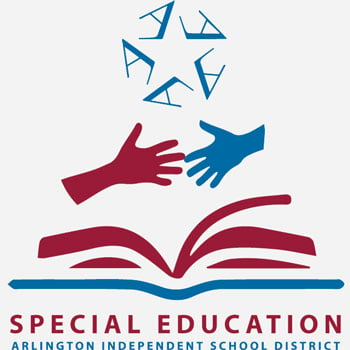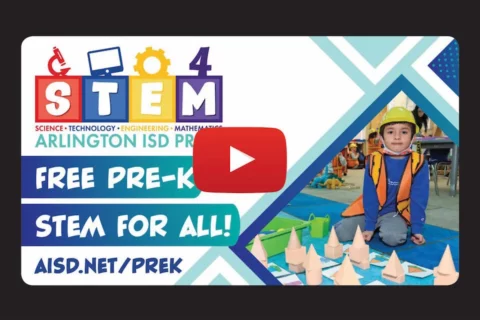Transition Services is designed to be within a results-oriented process, that is focused on improving the academic and functional achievement of the child with a disability to facilitate the child’s movement from school to post-school activities, including postsecondary education, vocational education, integrated employment (including supported employment); continuing and adult education, adult services, independent living, or community participation.
Resources
- AISD Transition Planning for Families Brochure (English)
- AISD Transition Planning for Families Brochure (Spanish)
- AISD Transition Planning for Families Brochure (Vietnamese)
- AISD Transition Resource Guide
- Eduref.org College Preparation Guide
- Special Education Parent Guidebook
- Texas Driving with Disability Program
- Texas Transition and Employment Guide
Post Secondary Facilitators
The Post Secondary Facilitators assist students, parents, and teachers in the development and support of students' post-secondary goals and coordinated sets of activities. The information below provides guidance and resources related to transition services in Arlington ISD.
|
Martin HS, Arlington Collegiate at TCC-SE, Arlington College and Career, Boles JHS, Young JHS, Corey Academy, Ditto, Dunn, Little, Miller, Moore, Wood |
(682) 867-8726 |
|
|
Seguin HS, Ousley JHS, Carter JHS, Amos, Ashworth, Burgin, Hale, Morton, Pearcy, Williams |
(682) 867-6767 |
|
|
Lamar HS, Turning Point HS, Nicols JHS, Shackelford JHS, Butler, Ellis, Jones, Kooken, Larson, Peach, Pope, Sherrod, Speer, Webb, Wimbish, Turning Point JR |
(682) 867-0080 |
|
|
Bowie HS, Venture HS/ Grad Lab, Newcomer Center, Collegiate at TCC-SE, Arlington College and Career, Barnett JHS, Bebensee, Beckham, Bryant, Farrell, Fitzgerald, Remynse, Starrett, West |
(682) 867-4430 |
|
|
Sam Houston HS, Workman JHS, Adams, Anderson, Atherton, Berry, Crouch, Goodman, Johns, McNutt, Patrick, Rankin, Thornton |
(682) 867-2701 |
|
|
Arlington HS, Bailey JHS, Gunn JHS, Blanton, Crow, Duff, Foster, Hill, Key, Short, South Davis, Swift |
(682) 472-2413 |
What is Transition Planning in Arlington ISD?
Transition is a process that happens throughout the year that focuses on your child’s goals for the future. In the Arlington ISD, Transition Services must begin by the annual ARD before your child turns 14 years of age. However, a Transition IEP can be drafted and implemented at any time prior to age 14. As part of the ARD committee, your input, as well as your child’s input, is critical in the development of these goals and coordinated set of activities. When the ARD committee meets, including you and your child, a plan is developed that includes these goals and coordinated set of activities. The activities are designed to help your child make progress toward his/her post-secondary goals. During the school year, your child will engage in activities and learn skills related to:
- Daily living
- Community experiences
- Self-advocacy
- Related services
- Employment
- Training and/or education
The following individuals are involved in this process: students, parents, special education teachers, general education teachers, school administrators, school support staff (e.g., counselors, Post Secondary Facilitators), and other individuals you feel have an educational interest in your child. If written permission is obtained from a child’s legal guardian, then agency representatives that may support children with disabilities may be involved.
What are Medicaid Waivers and Interest Lists?
Medicaid waivers allow the state to be more flexible in how it spends money to provide some long-term services to some people with disabilities or elderly citizens who are eligible for Medicaid. Waivers override certain rules for how that funding can be used. Now, if eligibility requirements are met, people can receive the services they need in their own homes or other community settings. In Texas, there are several different waiver programs that offer a broad range of home and community-based services. There are different rules and funding amounts associated with each of the different waivers. In general, though, they all help people with disabilities or elderly citizens obtain the supports they need.
Applicants are placed on the interest lists on a first-come, first-served basis. When a person’s name comes to the top of the lists, he or she will be contacted by a caseworker to determine eligibility. The wait time to be contacted by a caseworker can be up to 13 years. Therefore, individuals are strongly encouraged to place their names on the interest lists as soon as possible. In addition, individuals are advised to update their contact information yearly. Below is a list of several available Medicaid Waiver programs: Home and Community-based Services (HCS) Community Living Assistance and Support Services (CLASS) Medically Dependent Children’s Program (MDCP) Community Based Alternatives (CBA) Deaf Blind with Multiple Disabilities (DBMD)
What Can I Do to Help My Child Prepare for the Future?
Collect information about your child by asking him/her the following questions:
- What are your strengths, interests and abilities? What are you good at? What do you like to do? What are your hobbies? What are your talents? What are your favorite extra-curricular activities?
- How do you learn best? Do you learn better by listening, speaking, playing or writing?
- What are your goals for the future? Where do you want to live when you get older? Where do you want to go to school/college? What do you want to be when you grow up?
Ask yourself the following questions about your child:
- What skills and experiences does my child need in order to reach his/her goals?
- What functional skills does my child do at this time? (e.g., grooming skills, self-help skills, chores, cooking, money management)
- What level of independence does my child possess when it comes to important life skills, self-advocacy and responsibility?
Learn about resources available to you and your child at school and in the community.
- Talk to the Post Secondary Facilitator assigned to your child’s campus.
- Identify agencies that may help with your child’s disability. A list of agencies is located on this webpage.
- Attend the annual Arlington ISD Community Resource Fair.
The following are several suggestions on how you can help your child prepare for the future.
- Provide your child time to practice basic skills. (e.g., chores, time, safety skills)
- Help your child get to know themselves better.
- Give your child opportunities to make choices.
- Help your child with their communication skills. (e.g., listening/speaking skills)
- Promote problem-solving and decision-making at home.
- Teach assertiveness and self-advocacy skills through modeling and role-play.
- Help your child learn how to set goals.
- Foster friendships and community supports. (e.g., play groups, summer camps)
- Encourage your child to prepare for and take part in their ARD meeting.
- Plan for the future NOW!
Student Participation in the ARD Meeting and Transition Process
By law a student must be invited to attend the Admission, Review and Dismissal (ARD) committee meeting if the purpose of the meeting will be to discuss the student’s post-secondary goals and the transition services needed to achieve those goals. In the Arlington ISD students in grades 5 – 12 are encouraged to prepare for and participate in their ARD committee meeting to the maximum extent possible with support from their family and school.
Transition Topics & Supports
- Adaptive Technology for Cars
- Accessible Home Checklist
- 2-1-1 (Community Resources, Services, & Support)
- Cognitive Technology Literature Database
- March of Dimes
- Tarrant Cares
- Texas Center for Disability Studies
- Texas Youth Hotline
- Transition in Texas
- United Way of Metropolitan Tarrant County
Universities, Colleges, & Trade/Technical Schools (applications, financial aid, scholarships)
- College Living Experience (CLE)
- Continuing Education at TCC
- Educational Talent Search - UTA
- Tarrant County College (TCC) - Disability Support Services
- Texas State Technical College
- UT – Arlington (UTA) Office for Students with Disabilities
- www.applytexas.org
- www.careersandcolleges.com
- www.collegeboard.com
- www.collegefortexans.com
- www.collegenet.com/elect/app/app
- www.edref.com
- www.everychanceeverytexan.org/about/scholars
- www.fafsa.ed.gov
- www.fastweb.com
- www.finaid.org
- www.mappingyourfuture.org
- www.salliemae.com
- www.scholarships.com
- www.texasgearup.com
- www.texastomorrowfunds.org
- https://comptroller.texas.gov/programs/education/match/scholarship-types.php
Transportation, Housing, & Independent Living
- American Red Cross-Wheels
- Apartments.com
- Arlington Housing Authority
- Breckenridge Village
- Catholic Charities – Housing Counseling Program
- DART-Dallas Area Rapid Transit
- Fort Worth Transportation Authority
- Handitran
- Helping Restore Ability>
- Marbridge
- Mary's House
- Mission Arlington
- Mountain State Centers for Independent Living
- Move.com
- National Highway Traffic Safety Administration
- National Mobility Equipment Dealers Association
- New Danville
- REACH of Fort Worth
- Texas Department of Public Safety
- Texas Department of State Health Services
- The Association for Independent Living of Dallas (AFIL)
Disability-Specific Resources
- Attention Deficit Disorder Association (ADDA)
- AAIDD
- Advocates for Special People
- American Council of the Blind
- American Diabetes Association of Texas
- Autism Society
- Autism Treatment Center – Dallas Chapter
- Center for the Study of Autism
- Children and Adults with Attention Deficit Disorder (C.H.A.D.D.)
- Council for Learning Disabilities
- Cystic Fibrosis Foundation NE Texas Chapter
- Dallas Asperger’s Network Information Support and Hel
- Deaf Action Center
- Down Syndrome Guild of Dallas
- Down Syndrome Partnership of Tarrant County
- Epilepsy Foundation of Texas
- Global Autism Collaboration
- Green Oaks Adult Learning (GOAL)
- International Dyslexia Association
- LD ONLINE
- Learning Disabilities Association of America (LDA)
- National Center for Learning Disabilities (NCLD)
- National Down Syndrome Society
- National Federation of the Blind
- National Library Service for the Blind and Physically Handicapped
- National MS Society
- National Organization on Fetal Alcohol Syndrome
- National Tourette Syndrome Association
- nonPareil Institute
- Online Asperger Syndrome Information and Support (OASIS)
- Spina Bifida Association of North Texas
- The Brain Injury Association of Texas
- The Deaf Resource Library
- Tourette Syndrome Association of DFW
Government Agencies & Community Organizations
- ARC of Northeast Tarrant County
- Easter Seals of North Texas
- SSA - Social Security Administration
- Texas Health and Human Services - Disability Services
- The Council for Exceptional Children (CEC)
Military
College/School Entrance Exams
- ACCUPLACER Overview
- ACT Overview
- ACT Testing Accommodations
- ACT Testing Website
- ASVAB Testing Website
- SAT Overview
- SAT Testing Accommodations
- SAT Testing Website
- THEA Overview
- THEA Testing Accommodations
- THEA Testing Website
- www.testprepreview.com/
Employment and Volunteering
- Cool Works
- Job Corps
- Volunteer Opportunities in Arlington, TX
- US DoL Office of Apprenticeship
- Career Builder
- Career Cruising
- Career One Stop
- Career.com
- Employment Guide
- Employment Transition
- Goodwill
- Government Job Search
- MHMR of Tarrant County
- Monster Board
- Nation Job Online
- Occupational Outlook
- Occupational Outlook Student Site
- Quintessential Careers
- Vocational Information Center
- Workforce Solutions for Tarrant County
- Yahoo Careers
Recreation and Leisure
- Camp Summit
- Camp Thurman
- All Star Equestrian Foundation
- Arlington Parks and Recreation
- Arlington Public Library
- Big Brothers Big Sisters of North Texas
- Boy Scouts of America
- Camp C.A.M.P.
- Camp Channel
- Campfire First Texas Council
- Girls Inc. of Tarrant County
- Kids Camp
- Lion’s Club Summer Camp Program
- National Camp Association
- Special Olympics of Texas Area 11
- TCC - College for Kids
- Texas Parks and Wildlife Department
- YMCA
- YWCA
Guardianship
REGARDLESS OF A PERSON’S DISABILITY, WHEN THAT PERSON TURNS 18, THEY ARE CONSIDERED A LEGAL ADULT.
What this means is, the person has the right to enter into contracts, make decisions without needing consent from another person, etc. Texas laws permit another person to petition for guardianship of someone who may not be able to make decisions for themselves.
To do this, the individual seeking the petition will need to go to court. He/she could hire a lawyer, or possibly petition directly to the courts in some cases.
The process cannot begin until the person is almost 18. Whether you represent yourself or hire a lawyer, the courts will assign a lawyer to the person from whom you are trying to get guardianship. They will take the stance of protecting the rights of that person. You or your lawyer, with input from a court investigator, will argue whether there is justification for taking over the decision-making rights of the person.
The process may take weeks or even months, so one must prepare in advance if they wish to seek guardianship.
For more information on how to seek guardianship, research information at the following websites or contact a lawyer who has experience in guardianship cases.
NOT ALL PERSONS WITH A DISABILITY NEED GUARDIANSHIP.
Texas Guardianship Association
Special Needs Trust / SSI
Driver's License, Selective Service, & Voter Registration
Students can take driver’s education in a number of ways.
1. School districts often have courses on their campuses. Some districts offer the class only in the summer. Others have them throughout the school year.
2. Businesses can provide driver’s education throughout the year. The costs vary from business to business, so it is wise to call several local or available businesses that can provide this service.
3. Parents can now act as the instructor for a driver’s education program. The Texas Department of Public Safety has information about what the parents’ role will be in this program and how to enroll. The information can be found at https://www.tdlr.texas.gov/driver/driver.htm
Selective Service
Registering is important to the future of young men and the country.
Voter Registration
To be eligible to register to vote in Texas, you must:
1. Be a U.S. citizen
2. Be a resident of the county in which you are registering
3. Be 18 years old (you may register at 17 years and 10 months)
4. Not be a convicted felon (unless a person’s sentence is completed, including any probation or parole)
5. Not be declared mentally incapacitated by a court of law
You can receive information about voting in Texas on-line at www.sos.state.tx.us.
Adult Mental Health Services & Medical Supports
Medical Facilities in the Area
Arlington Public Health Center
536 W. Randol Mill Road
Arlington, TX 76011
817-548-3990
https://www.tarrantcountytx.gov/en/public-health/public-health-locations.html
John Peter Smith Health Network
1500 S. Main St.
Fort Worth, TX 76104
817-921-3431
www.jpshealthnet.org
Texas Health Arlington Memorial Hospital
800 W. Randol Mill Road
Arlington, TX 76012
817-960-6100
https://www.texashealth.org/locations/texas-health-arlington-memorial
National Alliance for Caregiving
www.caregiving.org
National Respite Network – Respite Locator Service
919-490-5577
https://archrespite.org
TexCare Partnership
Adult Mental Health Services
Below are additional resources related to mental health:
NAMI of Dallas (National Alliance on Mental Illness)
214-341-7133
NAMI of Tarrant County (National Alliance on Mental Illness)
817-332-6677
Self-Advocacy, Self-Determination & Legal
Self Advocates Becoming Empowered
P.O. Box 30142
Kansas City, MO 64112
www.sabeusa.org
Special Needs Advocates for Parents
www.specialeducationadvocacy.org/
Lawyer Referral Service
1315 Calhoun Street
Fort Worth, TX 76102
817-336-4101
www.tarrantbar.org
West Texas Legal Service
400 N. Beach St.
Fort Worth, TX 76111
817-336-3943
800-252-9690
877-9TEXBAR
www.texaslawhelp.org
The information contained on this website has been included for general informational purposes only. Any posted information, files and/or external website links listed on this website regarding trainings, agencies, products and/or services shall not be taken as a recommendation or endorsement by the Arlington Independent School District and/or the Special Education Department. In addition, the Arlington Independent School District and the Special Education Department shall not be responsible for any fees attached to any events posted on this website. All links to other websites or files from this site have been pre-screened and assessed for appropriate content. However, the Arlington Independent School District and the Special Education Department do not assume and are not responsible for any liability and cannot guarantee that quality content standards will be maintained at these linked websites and files. Please e-mail the webmaster at kstratto@aisd.net if these sites or files display inappropriate content or if you have trouble accessing this page and need to request an alternate format.








